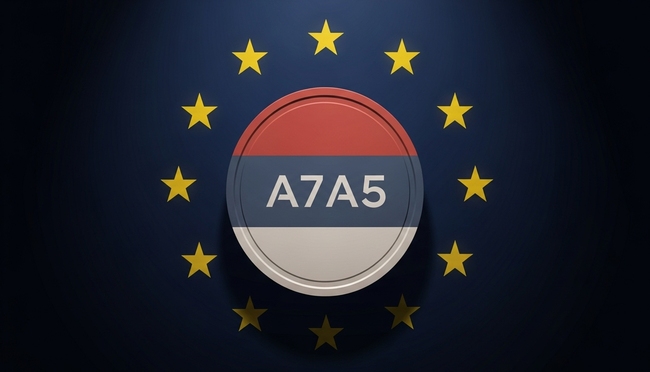Highlights:
- EU launches a new sanctions package that mainly focuses on Russia’s expanding crypto activity.
- Ruble-backed A7A5 stablecoin faces ban as Europe blocks Moscow’s digital finance routes.
- These latest restrictions aim to cut Russia’s access to crypto systems beyond Western control.
The European Union has announced its 19th round of sanctions against Russia. This time, the focus is on cryptocurrency networks used to avoid financial bans. At the center of this action is A7A5, a ruble-backed stablecoin linked to the Russian state. EU officials said the coin has been used to fund activities connected to Russia’s war in Ukraine.
EU’s Foreign Policy Chief Kaja Kallas says the newly adopted 19th sanctions package targets Russian banks, crypto exchanges, and companies in China and India helping Moscow evade sanctions. The EU is also restricting Russian diplomats' movement to counter destabilization efforts. pic.twitter.com/pXCCXBP8Jy
— NOELREPORTS 🇪🇺 🇺🇦 (@NOELreports) October 23, 2025
The A7A5 stablecoin launched in February in Kyrgyzstan, one of the few countries that did not support Western sanctions against Russia. The token’s issuer is A7, a company jointly owned by Moldovan businessman Ilan Shor and Russia’s Promsvyazbank. The coin quickly became popular on the Grinex crypto exchange, which was created by former employees of Garantex, a platform already under Western sanctions.
By the end of September, more than 41 billion A7A5 tokens were in circulation, with a total value close to $500 million. Authorities said Russia used the token to move money outside normal banks and avoid financial restrictions.
EU Expands Sanctions to Stop Russia’s Financial Evasion
The EU Council said the new sanctions target not only the coin but also its developer, the issuer in Kyrgyzstan, and the operators of connected platforms. Investigators found that these platforms handled billions of dollars in crypto transactions connected to Russia’s war operations.
The new sanctions package also targets several financial entities accused of helping Moscow bypass restrictions. The EU has banned eight oil traders and banks from Tajikistan, Kyrgyzstan, Hong Kong, and the United Arab Emirates, accusing them of supporting Russia’s efforts to evade financial bans. Brussels has also increased monitoring and restrictions on Russian diplomats to prevent further destabilization activities. At the same time, EU-based crypto and fintech companies have been warned not to assist Russia in developing alternative financial systems.
The EU’s high representative for foreign affairs and security policy, Kaja Kallas, said:
“We have just adopted our 19th package of sanctions. It targets Russian energy, banks, crypto exchanges, and entities in China, among others. The EU is also regulating the movements of Russian diplomats to counter attempts at destabilisation.”
We just adopted our 19th sanctions package.
It targets Russian banks, crypto exchanges, entities in India and China, among others.
The EU is curbing Russian diplomats’ movements to counter the attempts of destabilisation.
It is increasingly harder for Putin to fund this war.
— Kaja Kallas (@kajakallas) October 23, 2025
Russia’s Crypto Legalization Plans Face EU Pushback
The latest ban followed soon after an announcement from Russia’s Finance Minister Anton Siluanov, who revealed plans to legalize cryptocurrency for foreign trade purposes. He noted that digital assets could allow capital to move across borders without passing through the traditional financial system. Siluanov admitted the need for tighter rules and called legalization a key step to boost Russia’s economic flexibility.
According to Russian outlet Izvestia, Finance Minister Anton Siluanov announced on October 21 that the Ministry of Finance and the Central Bank have agreed to legalize the use of cryptocurrencies in foreign trade and introduce relevant legislation. He added that regulators will…
— Wu Blockchain (@WuBlockchain) October 22, 2025
However, the EU’s action against the A7A5 stablecoin and its platforms could slow down Russia’s digital finance plans. By cutting off ruble-backed tokens and making crypto rules stricter, the EU wants to stop Moscow from creating a separate financial system outside Western control.
Best Crypto Exchange
- Over 90 top cryptos to trade
- Regulated by top-tier entities
- User-friendly trading app
- 30+ million users
eToro is a multi-asset investment platform. The value of your investments may go up or down. Your capital is at risk. Don’t invest unless you’re prepared to lose all the money you invest. This is a high-risk investment, and you should not expect to be protected if something goes wrong.






